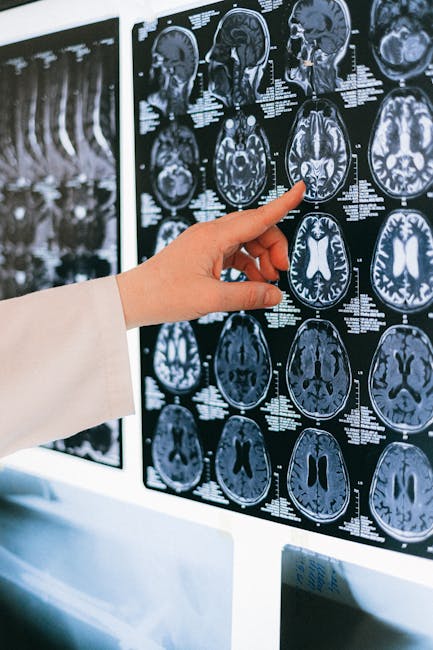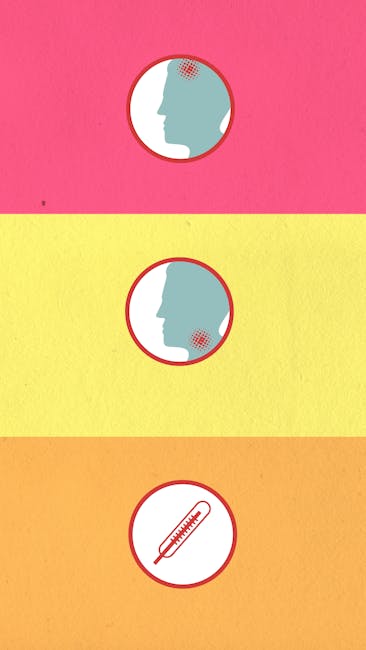The Shocking Link Between Common Drugs and Dementia: What You Need to Know
The Shocking Link Between Common Drugs and Dementia: What You Need to Know
Dementia, a debilitating condition characterized by cognitive decline and memory loss, affects millions worldwide. While aging is a significant risk factor, research increasingly points towards surprising contributors, including commonly prescribed medications. Understanding this connection is crucial for mitigating risk and promoting brain health.
Anticholinergic Drugs: A Primary Suspect
Anticholinergic drugs are a class of medications that block the action of acetylcholine, a neurotransmitter crucial for memory, learning, and cognitive function. These drugs are widely prescribed for various conditions, including:
- Overactive bladder
- Allergies
- Parkinson’s disease (some medications)
- Asthma
- Chronic obstructive pulmonary disease (COPD)
- Gastrointestinal issues (e.g., irritable bowel syndrome)
- Motion sickness
- Sleep disorders
While effective in treating their target conditions, studies have linked long-term use of anticholinergic drugs to an increased risk of dementia, particularly Alzheimer’s disease. The mechanism isn’t fully understood, but the disruption of acetylcholine signaling is believed to play a significant role. The brain’s dependence on acetylcholine for crucial cognitive processes makes this a significant concern.
The impact isn’t uniform. The risk appears to be dose-dependent and duration-dependent. Higher doses and longer periods of use are associated with a greater risk of cognitive impairment. Furthermore, the risk is amplified when individuals take multiple anticholinergic medications simultaneously, a phenomenon known as polypharmacy.
Identifying Anticholinergic Drugs:
It’s crucial to understand that not all anticholinergic medications carry the same level of risk. Some have a higher anticholinergic burden than others. To determine the anticholinergic potential of a medication, you can consult resources such as the Anticholinergic Risk Scale (ARS). This scale helps healthcare professionals assess the cumulative anticholinergic effect of multiple medications.
Nonsteroidal Anti-inflammatory Drugs (NSAIDs): A Complicated Relationship
Nonsteroidal anti-inflammatory drugs (NSAIDs), commonly used to relieve pain and inflammation, have also been linked to an increased risk of dementia in some studies. However, the evidence is less conclusive than for anticholinergic drugs.
Some studies suggest a correlation between long-term NSAID use and an increased risk of Alzheimer’s disease, while others have found no significant association. This inconsistency may be due to several factors, including the type of NSAID, the dosage, the duration of use, and the presence of other confounding factors.
The potential mechanisms through which NSAIDs might increase dementia risk are still under investigation. Some hypotheses suggest that chronic inflammation, which NSAIDs aim to reduce, may play a role in the development of neurodegenerative diseases. However, it’s also possible that other factors, such as cardiovascular complications, could be responsible for the observed association.
Benzodiazepines and Other Sedatives: A Cautionary Note
Benzodiazepines, a class of drugs commonly prescribed for anxiety and insomnia, have also raised concerns regarding their potential link to dementia. Long-term use of benzodiazepines has been associated with an increased risk of cognitive decline and memory problems.
Similar to NSAIDs, the evidence isn’t entirely conclusive, and the underlying mechanisms remain unclear. It’s possible that the sedative effects of benzodiazepines could interfere with cognitive function, leading to long-term impairment. Furthermore, some benzodiazepines may have anticholinergic properties, contributing to the risk.
It’s crucial to emphasize that short-term use of benzodiazepines for acute anxiety or insomnia is unlikely to pose a significant risk. However, long-term use should be carefully considered and only undertaken under strict medical supervision.
H2 blockers: Another potential risk
H2 blockers, used to reduce stomach acid production, have also been implicated in studies examining the risk of dementia. While the evidence isn’t as robust as for anticholinergic drugs, some studies have indicated a potential link between long-term use and cognitive impairment. The mechanisms underlying this association are still unclear and require further research.
The Importance of Careful Medication Management
The potential links between common drugs and dementia highlight the critical importance of careful medication management. Patients should discuss their medication history and concerns with their healthcare providers. This discussion should include any potential risks and benefits associated with their medications, especially long-term use.
Healthcare professionals should carefully evaluate the need for medications with known anticholinergic or other neurocognitive side effects. They should consider alternatives whenever possible and minimize the dosage and duration of treatment when necessary. Regular monitoring of cognitive function is also crucial, especially for patients taking medications with a potential link to dementia.
Lifestyle Factors and Dementia Prevention
While medications can play a role, lifestyle factors are equally important in preventing dementia. Adopting a healthy lifestyle can significantly reduce the risk of cognitive decline:
- Regular Exercise: Physical activity promotes blood flow to the brain, improving cognitive function.
- Healthy Diet: A balanced diet rich in fruits, vegetables, and whole grains supports brain health.
- Cognitive Stimulation: Engaging in mentally stimulating activities, such as reading, puzzles, and learning new skills, can help maintain cognitive sharpness.
- Social Engagement: Maintaining strong social connections and participating in social activities is crucial for mental well-being.
- Stress Management: Chronic stress can negatively impact brain health. Practicing stress-reducing techniques, such as meditation or yoga, is important.
- Sleep Hygiene: Getting adequate, quality sleep is essential for brain function and repair.
Conclusion: A Call for Vigilance
The evidence linking certain common drugs to an increased risk of dementia is growing, but more research is needed to fully understand the mechanisms involved. The findings underscore the importance of careful medication management and the adoption of a healthy lifestyle to protect cognitive health. Open communication between patients and healthcare providers is essential to minimizing potential risks and maximizing the benefits of medication while preserving brain health.
This information is for educational purposes only and does not constitute medical advice. Always consult with your healthcare provider before making any changes to your medication regimen or lifestyle.





